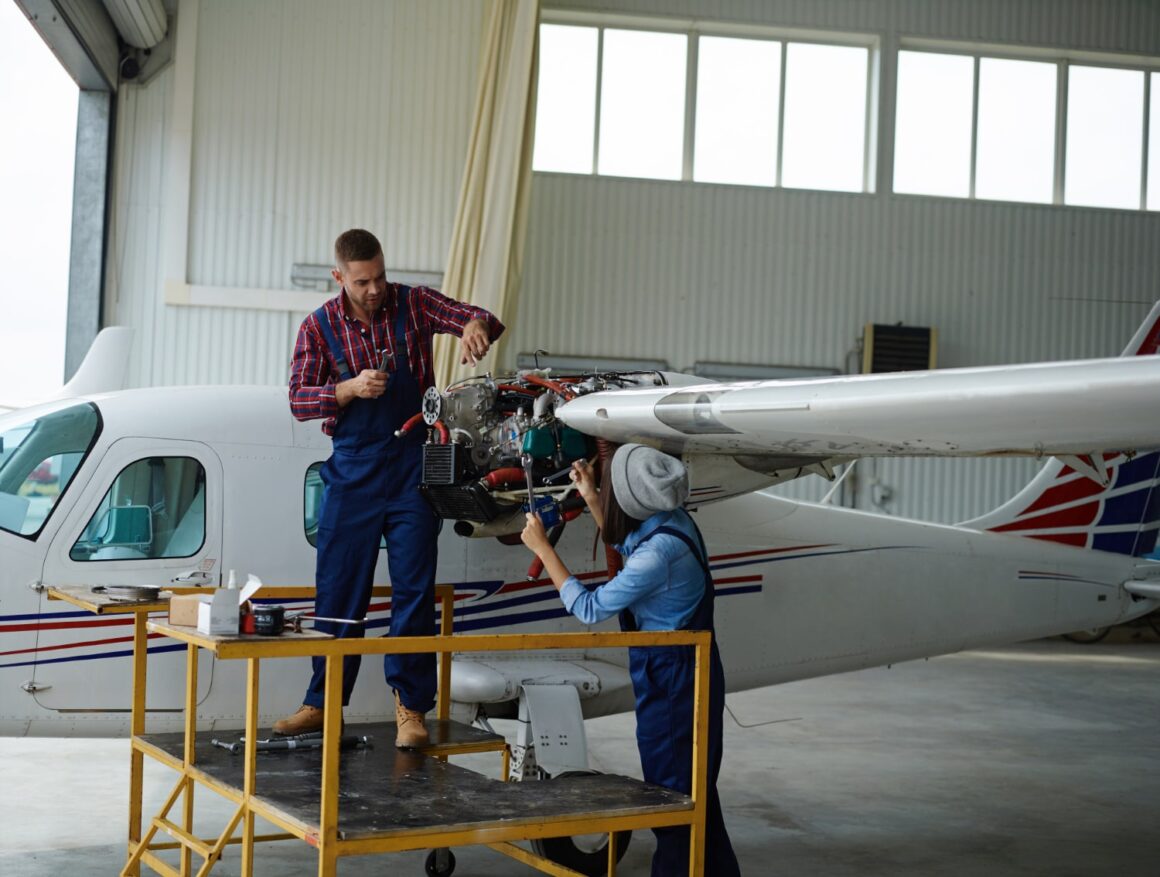Aircraft Mechanic – Standard Tools – Keeping Planes Safe in the Sky
Aircraft mechanics have the responsibility of ensuring the safe and reliable operation of aircraft. They perform a range of tasks including routine maintenance and significant repairs. To effectively carry out their duties aircraft mechanics rely on a set of specialized tools.
Here is a compilation of some tools that aircraft mechanics commonly use:
- Combination wrenches- These are utilized to tighten or loosen nuts and bolts.
- Socket wrenches- Similar to combination wrenches socket wrenches have sockets that accommodate various sizes of nuts and bolts.
- Ratchets- A specific type of wrench that enables quick fastening or loosening of nuts and bolts without removing the tool from the fastener.
- Screwdrivers- These tools are employed for tightening or loosening screws. Phillips, head and Torx screwdrivers are frequently used in aircraft maintenance.
- Pliers- Pliers serve multiple purposes such as grasping objects cutting wire and bending metal. Needle nose, diagonal cutting and slip joint pliers are particularly important for aircraft mechanics.
- Hammers- Used for driving nails breaking rivets and shaping metal. Ball peen hammers and dead blow hammers are commonly found in aircraft maintenance settings.
- Chisels- These tools are handy for cutting and shaping metal. Cold chisels and cape chisels are the commonly used types of tools in aircraft maintenance.
- Tape measures- Utilized for measuring distances.
- Levels- Used to ensure that surfaces are properly leveled.
- Flashlight- Comes in handy to illuminate work areas when they are dark or confined.
- Safety glasses- To protect the eyes from flying debris.
- Hearing protection- safeguards the ears from loud noises.
- Gloves- provide hand protection against cuts, abrasions and chemicals.
This is a basic rundown of the essential tools needed by aircraft mechanics. However, it’s important to note that the specific tools required can vary depending on the type of aircraft and the specific task at hand. Aircraft mechanics often rely on additional tools that aren’t typically found in a standard toolbox.
In addition to having the tools at their disposal aircraft mechanics also need to possess in depth knowledge of aircraft systems and how they function. They must be skilled at troubleshooting issues making repairs and ensuring that all aircraft meet safety standards before taking flight.
If you’re interested in pursuing a career as an aircraft mechanic, there are training programs available to help you achieve your goal. These programs typically span, over two years or more. Involve a combination of classroom instruction and hands on practical experience.
Once you finish your training, you’ll need to acquire an Airframe and Powerplant (A&P) mechanic license from the Federal Aviation Administration (FAA). This license requires passing both a written exam and a practical exam.
Additional Tips:
- When selecting tools its crucial to opt for brands specifically designed for aircraft maintenance.
- Keeping your tools clean and well maintained is also essential.
- Ensure your safety by wearing gear, like safety glasses hearing protection and gloves while working on aircraft.
- Never attempt to repair an aircraft if you lack the qualifications.
- Research and ensure a Complete Understanding of FOD prevention (Foreign Object Damage)


